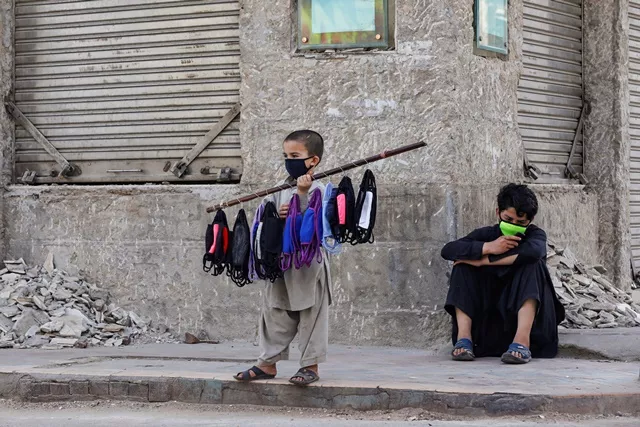Covid-19 and impact on economy
Extreme crisis can be managed through astute planning by govt
LAHORE: The news of the spread of Covid-19 has been creating havoc across the globe. When we turn on the media, the statistics of confirmed cases, deaths and recovered ones are there to attract the attention.Many observers, media commentators and analysts have argued that this is a public health crisis of acute nature since governments and multilateral institutions are not ready to forcefully respond to it.However, a few conspiracy theorists declare that the truth behind the coronavirus is that this is not a public health crisis rather a politically motivated agenda to transform the global economy.
Regardless of the available narratives, one thing is for sure that the global economy is in recession and Pakistan’s economy is not an exception in this regard.
Pakistan’s pre-corona economy was facing a mild recession, which was the result of stabilisation measures adopted by the government and the State Bank of Pakistan (SBP). Then came Covid-19, triggering lockdowns across Pakistan. These lockdowns have created lots of socio-economic problems.
On the social front, livelihood opportunities have been squeezed all of a sudden. Daily-wage earners, small and medium businesses and traders took a big hit due to this unavoidable action.
Although philanthropist/charity organisations actively jumped in to provide essential food items to a large chunk of people, the scale is quite large and it is not easy to reach out to all the deserving people.
On the economic front, the sudden closure of large industries, small and medium businesses, ports, airports and transport have almost jammed the wheel of the economy.
Even the lockdown has scaled down the consumption of petroleum products a great deal, which has resulted in partial closure of refineries and the government has to cut down on petroleum imports.
After lengthy deliberations, the government has resorted to partial lockdown and eased restrictions on certain industries and businesses. Specifically, it has allowed export-related industry to function by following cautious Standard Operating Procedures (SOPs).
The economic meltdown is taking place across the globe and exporters have already felt the pinch since the frequency and number of new orders has slowed down. They are meeting the old orders that were at advanced stage and close to completion. In certain cases, old orders have been put on hold since their processing has not yet started. This implies that Pakistan should expect lower foreign exchange earnings in the near future.
When the lockdown just started, the labour related to industries and other businesses waited for some time in cities in the hope that the situation would improve in a couple of weeks.
However, the situation deteriorates and many labourers have gone back to their native villages and towns since they are not in a position to eke out their existence. The compelling reason is that they will be better off in their native areas due to the availability of food items and shelter.
In a nutshell, the marked economic slowdown is now leading to negative GDP growth, as projected by the International Monetary Fund (IMF), the World Bank and the SBP.
Pakistan’s economy has weathered many storms in the past and has shown resilience under extreme global situations. Under the evolving situation, the social discontent has increased and it requires careful attention from the government.
If the government does astute planning and tries to implement its measures in true letter and spirit, the extreme crisis could be managed with little economic, political and social loss. Under the current crisis, the role of public policy is the key. Let us see how things unfold in the coming days.
The writer is the Assistant Professor of Economics at SDSB, Lahore University of Management Sciences
Published in The Express Tribune, April 20th, 2020.
Like Business on Facebook, follow @TribuneBiz on Twitter to stay informed and join in the conversation.


COMMENTS
Comments are moderated and generally will be posted if they are on-topic and not abusive.
For more information, please see our Comments FAQ